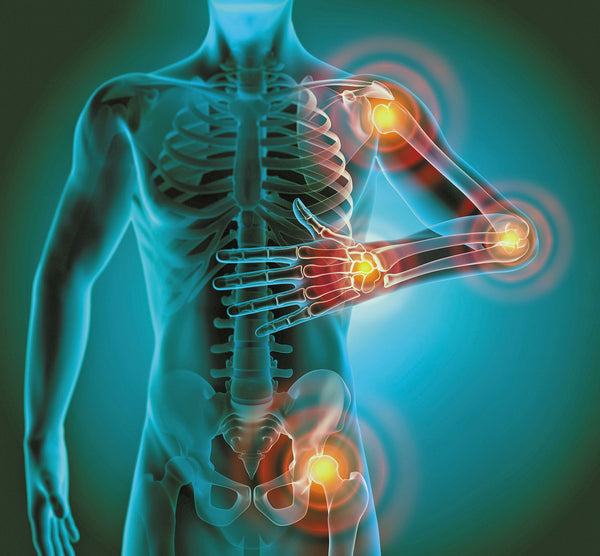How CBD can help relieve inflammation

Cannabidiol, or CBD, is a compound found in the Cannabis sativa plant. It is known for its potential therapeutic effects, including pain relief, anxiety reduction, and anti-inflammatory properties. Inflammation is the body's response to injury or infection, and while it is a necessary part of the healing process, chronic inflammation can lead to a range of health problems, including autoimmune disorders, arthritis, and cardiovascular disease. In this article, we will explore how CBD can help relieve inflammation.
Inflammation is a complex biological response that involves a range of immune cells, signaling molecules, and other factors. It is regulated by the endocannabinoid system (ECS), which is a complex network of receptors and signaling molecules that help maintain homeostasis in the body. The ECS includes two main types of receptors, CB1 and CB2, which are found throughout the body, including in the immune system.
CB2 receptors are particularly important for regulating inflammation. They are primarily found on immune cells, including macrophages, T-cells, and B-cells, which play a crucial role in the immune response. When these cells are activated by an inflammatory signal, they release cytokines and other pro-inflammatory molecules, which can cause tissue damage and pain. CB2 receptors can help regulate this process by reducing the release of pro-inflammatory molecules and promoting the production of anti-inflammatory molecules.
CBD can interact with CB2 receptors, as well as other receptors and signaling molecules, to help relieve inflammation. One way it does this is by reducing the production of pro-inflammatory cytokines, including tumor necrosis factor-alpha (TNF-alpha) and interleukin-6 (IL-6). These cytokines play a key role in the development of chronic inflammation, and reducing their production can help reduce inflammation and associated pain.
CBD can also promote the production of anti-inflammatory cytokines, including interleukin-10 (IL-10) and transforming growth factor-beta (TGF-beta). These cytokines help to suppress the immune response and reduce inflammation. By promoting their production, CBD can help counteract the effects of pro-inflammatory cytokines and help restore balance to the immune system.
In addition to its effects on cytokines, CBD can also reduce inflammation by inhibiting the activity of enzymes called cyclooxygenases (COX). These enzymes are involved in the production of prostaglandins, which are important signaling molecules in the inflammatory process. By inhibiting COX activity, CBD can reduce the production of prostaglandins and help reduce inflammation and associated pain.
Another way that CBD can help relieve inflammation is by modulating the activity of other receptors and signaling molecules that are involved in the immune response. For example, CBD can interact with TRPV1 receptors, which are involved in pain sensation and inflammation. By modulating the activity of these receptors, CBD can help reduce pain and inflammation.
CBD can also interact with PPAR-gamma receptors, which are involved in the regulation of immune function and inflammation. By modulating the activity of these receptors, CBD can help reduce inflammation and associated pain.
Finally, CBD can help relieve inflammation by reducing oxidative stress. Oxidative stress occurs when there is an imbalance between free radicals and antioxidants in the body. Free radicals are unstable molecules that can damage cells and tissues, leading to inflammation and other health problems. Antioxidants help to neutralize free radicals and reduce oxidative stress.
CBD is a potent antioxidant, and it can help reduce oxidative stress by neutralizing free radicals and promoting the production of antioxidants. By reducing oxidative stress, CBD can help reduce inflammation and associated pain. In conclusion, CBD can help relieve inflammation in a variety of ways. It can interact with CB2 receptors to reduce the production of pro-inflammatory cytokines and promote the production of anti-inflammatory cytokines




